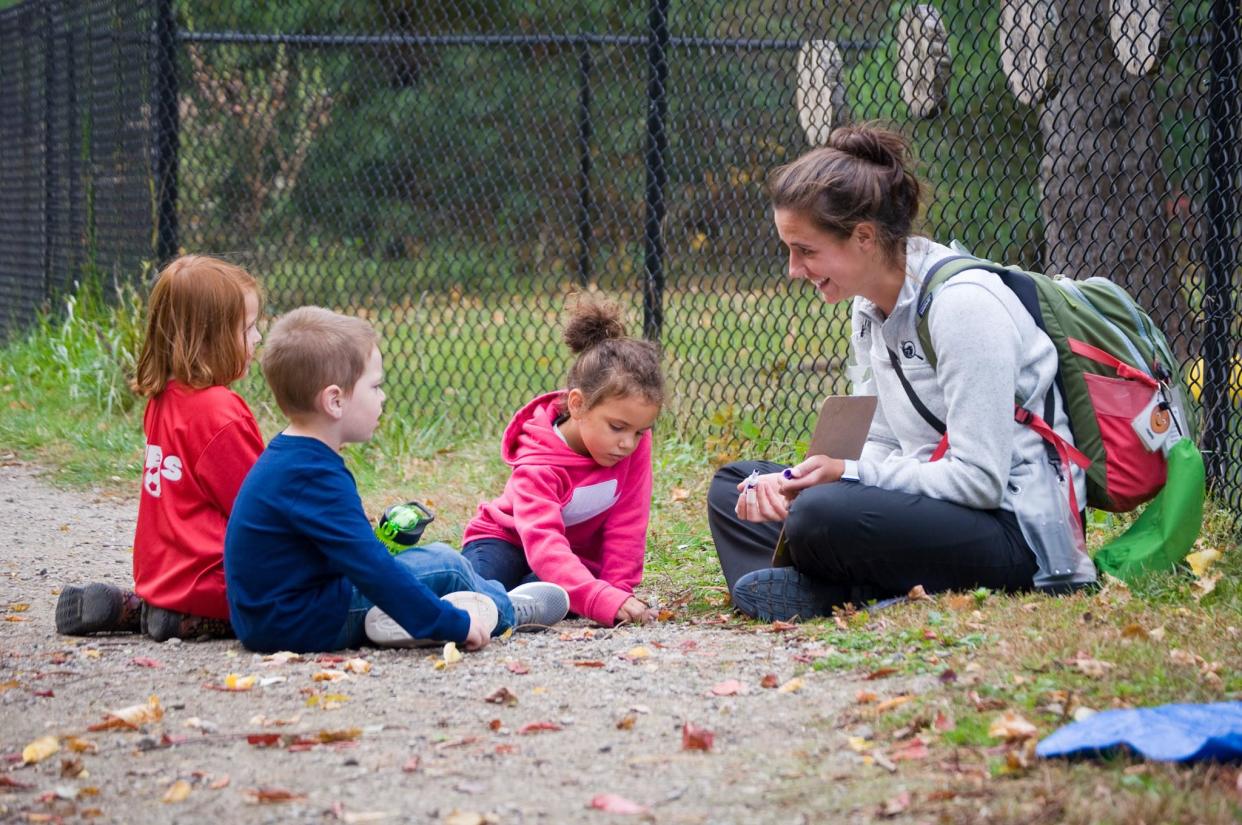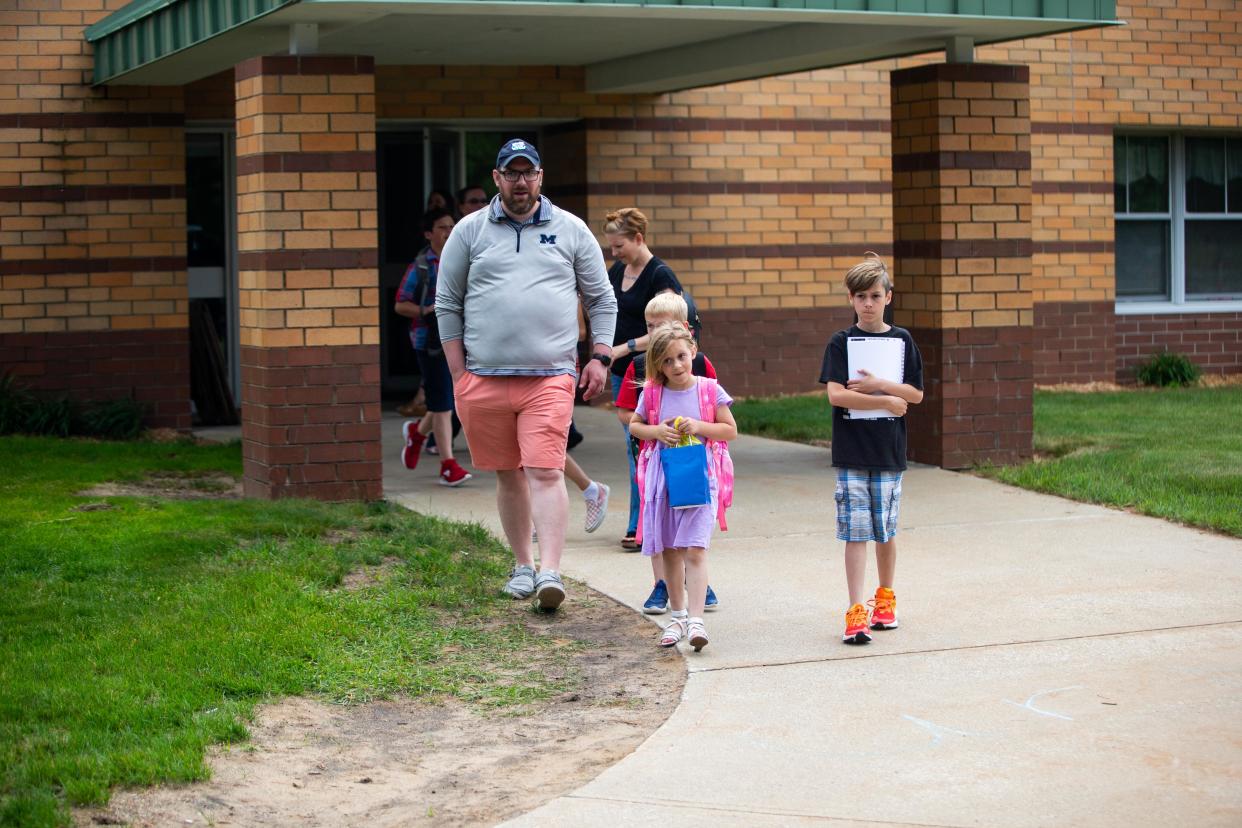Kids Count report: Michigan ranks 32nd nationally in child well-being
LANSING — A new report from the Annie E. Casey Foundation shows Michigan ranks in the bottom half of all states for child well-being. It also found that more than 7 million kids nationwide are struggling with anxiety or depression.
The 2022 Kids Count Data Book analyzes household data from all 50 states to show how children and families across the country are faring. In the latest edition of the report, Michigan ranks 32nd overall in childhood well-being.
In each of the report's four categories — economic well-being, education, health and family and community — Michigan was in the bottom half of states.

The state’s best ranking was 27th in health, followed by 29th in both economic well-being and family and community. Michigan’s worst ranking was 40th place in education.
This year’s report also included a section on youth mental health, a first for the report. Using Department of Health and Human Services data from 2016 and 2020, the percentage of children dealing with anxiety and depression were collected.
Across the country, 7.3 million children were dealing with some form of anxiety or depression in 2020, including 242,000 in Michigan. The percentage of children nationwide dealing with those issues increased from 9.4 percent to 11.8 percent. In Michigan, that rate went from 11.9 percent to 13.5 percent.
Michigan matched the national average on two of the four health subcategories, which used data from 2020, compared to data from 2010. The state was fourth-best nationally for the percentage of children without health insurance, which was just 3 percent, compared to a national 5 percent mark.

Michigan saw 28 deaths per 100,000 children and teens in 2020, the same as the national figure and up one from 2010. The state’s 32 percent of children ages 10-17 who are overweight or obese also matched national numbers.
The percent of babies with a low birth weight in Michigan rose from 8.4 percent in 2010 to 8.9 percent in 2020, above the country’s 8.2 percent figure.
Despite the 29th ranking in economic well-being, Michigan improved in each of the four data indicators in that category, which measured data from 2016-20 compared to 2008-12
The percentage of children in poverty was at 19 percent, down from 23 in the previous data set, but above the state mark of 17. The percentage of children whose parents lacked secure employment dropped from 34 to 29 percent.

A quarter of children lived in a household with a high housing cost burden, down from 37 percent. Seven percent of teens in the state were not in school and not working, down from 9 percent.
For family and community, Michigan had two subcategories better than average and two worse. Data is pulled from 2016-2020, with a comparison point of 2008-12.
The percentage of children in single-parent homes, 35 percent, was slightly over the national amount of 34 percent. Michigan also had a higher percentage of children living in high-poverty areas at 12 percent, compared to a national 9 percent. Michigan’s percentage was down from 16 percent mark in 2008-12, however.
The number of teen births per 1,000 in Michigan dropped from 30 to 14 in the new data set, falling below the national number of 15 per 1,000. Nine percent of children in the state live in a household where the head of the house did not have a high school diploma, better than the national 12 percent rate.
Education subcategories also use 2016-20 and 2008-12 data sets. The report shows 53 percent of Michigan kids ages 3 and 4 were not in school, matching the national average. Nineteen percent of Michigan high-schoolers were not graduating on time, an improvement from 26 percent but higher than the national mark of 14 percent.

Fourth grade students not proficient in reading improved from 70 to 68 percent in Michigan, but is still above the national average of 66 percent. Eighth grade math proficiency stayed the same with 69 percent of students not proficient in the subject.
The Annie E. Casey Foundation calls on lawmakers to develop programs and policies to ease mental health burdens on children and families. Those actions include prioritizing meeting kids’ basic needs of food and housing, ensuring children have access to the mental health care they need when and where they need it and bolster mental health care that takes into account the experiences and identities of young people.
— Contact reporter Mitchell Boatman at mboatman@hollandsentinel.com. Follow him on Twitter @SentinelMitch.
This article originally appeared on The Holland Sentinel: Kids Count: Michigan ranks 32nd nationally in child well-being
